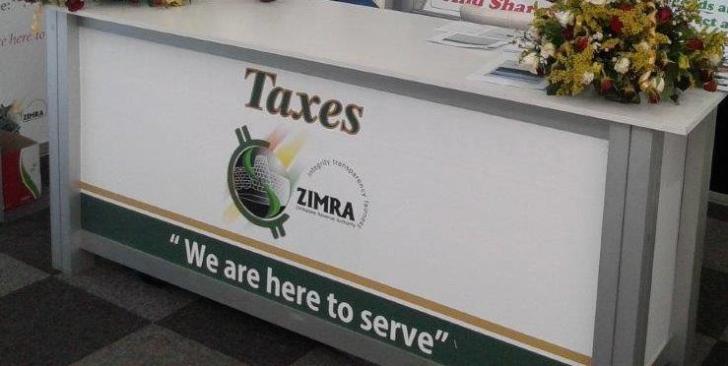News / Local
Zimra to garnish Chinese firm with US$2m sting over taxes
13 hrs ago | Views

Chinese-owned mining company, AfroChine Smelting, has been unsuccessful in its attempt to stop the Zimbabwe Revenue Authority (Zimra) from garnishing its bank account to recover US$2 million in unpaid mining royalties.
The company had filed an urgent chamber application before High Court Judge Justice Emilia Muchawa, seeking an interim interdict to prevent Zimra from raiding its accounts. AfroChine argued that mining royalties owed under the Mines and Minerals Act could not be enforced through a garnishee order under the Income Tax Act.
However, Justice Muchawa ruled that the application was improperly before the court, stating that "an interdict is inappropriate in the circumstances." She further noted that the application for interim relief lacked merit and was unsustainable, as the garnishee action had already taken place.
The judge emphasized that the lawfulness of Zimra's actions was not for determination at this stage, and that there was no need to address the issue of whether Zimra's conduct was lawful or not.
Zimra's tax assessment revealed that AfroChine Smelting had under-declared royalties between 2019 and 2021. In her ruling, Justice Muchawa found that the miner had erred in its royalty declarations, specifically in its deduction of 10 cents from the gross fair market value of the cost of freight, which she ruled was prohibited by section 37 (9) of the Finance Act.
AfroChine had previously lodged an appeal against the tax assessment, but it was struck off the roll. The company then filed a chamber application for condonation and extension of time to appeal the ruling.
In response to the garnishee order issued by Zimra in May, which had targeted VAT refunds owed to AfroChine to cover the unpaid royalties, the company disputed that it owed any obligations under the Income Tax Act. AfroChine requested the garnishee order to be retracted by May 20, 2024, but the request was not honored, prompting the miner to approach the High Court.
AfroChine's efforts to challenge the garnishee order have now been dismissed, as the court found the company had indeed failed to properly declare its mining royalties, and its appeal for an interim relief was not upheld.
The company had filed an urgent chamber application before High Court Judge Justice Emilia Muchawa, seeking an interim interdict to prevent Zimra from raiding its accounts. AfroChine argued that mining royalties owed under the Mines and Minerals Act could not be enforced through a garnishee order under the Income Tax Act.
However, Justice Muchawa ruled that the application was improperly before the court, stating that "an interdict is inappropriate in the circumstances." She further noted that the application for interim relief lacked merit and was unsustainable, as the garnishee action had already taken place.
The judge emphasized that the lawfulness of Zimra's actions was not for determination at this stage, and that there was no need to address the issue of whether Zimra's conduct was lawful or not.
Zimra's tax assessment revealed that AfroChine Smelting had under-declared royalties between 2019 and 2021. In her ruling, Justice Muchawa found that the miner had erred in its royalty declarations, specifically in its deduction of 10 cents from the gross fair market value of the cost of freight, which she ruled was prohibited by section 37 (9) of the Finance Act.
AfroChine had previously lodged an appeal against the tax assessment, but it was struck off the roll. The company then filed a chamber application for condonation and extension of time to appeal the ruling.
In response to the garnishee order issued by Zimra in May, which had targeted VAT refunds owed to AfroChine to cover the unpaid royalties, the company disputed that it owed any obligations under the Income Tax Act. AfroChine requested the garnishee order to be retracted by May 20, 2024, but the request was not honored, prompting the miner to approach the High Court.
AfroChine's efforts to challenge the garnishee order have now been dismissed, as the court found the company had indeed failed to properly declare its mining royalties, and its appeal for an interim relief was not upheld.
Source - the standard



































